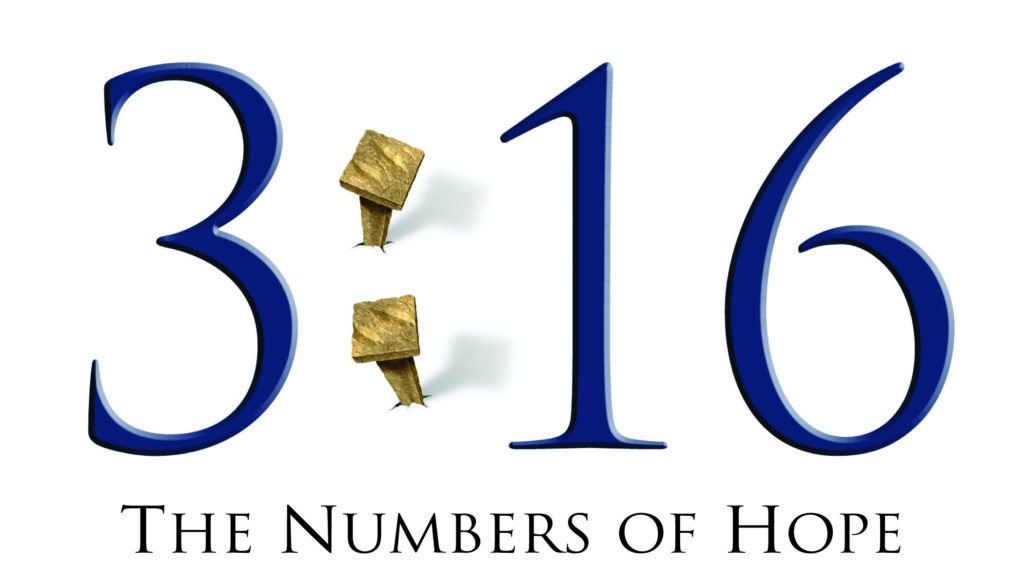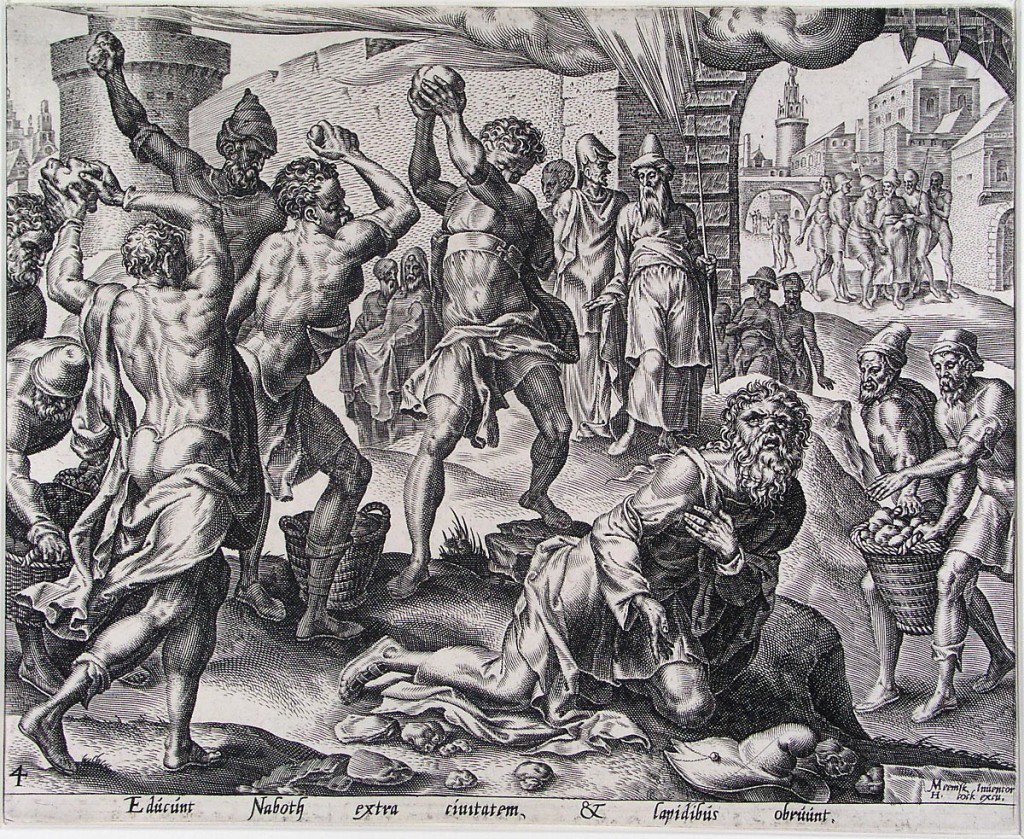Back in mid-August of 2016, I posted a blog entitled Food and the Whole Faith Church. In it I wrote the following:
“A defining feature of a whole faith church will be that this community of believers will be fully committed to demonstrating the proper and attentive relationship between humanity and Creation in its common meals, including communion.
This means that the food of the whole faith church will come as much as is practically possible from farms where the land, water, and animals of God’s earth are stewarded in ways that God would find fitting of a good, loving shepherd and from farm enterprises which support a good quality of life for the farmers and their communities.”
Then in late September, I wrote a follow-up piece that explored some of the practicalities of applying that principle with ten supplementary principles.
Because food is so central to culture and because forming a church with a new culture of food would be radically different from the life of churches most people know, I believe it’s necessary to wrestle with more of the practicalities and concerns this idea presents. Below you’ll find a series of questions that might reasonably be asked about the ideas I’ve proposed followed by my responses:
Isn’t a focus on choosing right foods to eat a new legalism that replaces the Gospel of grace with a gospel of deeds?
No. And an emphatic double no.
It is true that early Christians were concerned about food arguments dividing them and compromising their ability to evangelize diverse groups of people. And I’ve become convinced that church members should not be so focused on food purity that they refuse to eat, if there is no other choice, food they normally wouldn’t eat when it is offered to them in social situations with people who are not members of the church.
But you would have to twist what is in the Bible as a whole to believe that a Christian faith does not express itself in action and in daily decisions. This conviction is one of the pillars of a whole faith church.
Living out the faith and the loving spirit that comes with that faith will compel us to make every detail of our church’s life fit together. The common meals of a whole faith church are the home turf of that church. In those common meals we have the right to express our faith completely and holistically. Not doing so actually hollows out all of the meaning of the Christian faith. How Christian is a community that eats ham, for exactly, that has come from pigs raised in factory farms where thousands are kept inside their whole lives, where fecal particulates fill the air, where local waterways are defiled, where the lives of neighbors are made miserable, and where the pigs are fed a steady stream of antibiotics to promote growth which contributes to antibiotic resistant bacteria that kill people?
Our faith is an incarnational faith. It is not just an abstract assent to abstract doctrines and ideas. It calls for belief in God through Jesus that our actual lives rest on and are rooted in. Jesus showed us what that looks like. Jesus’ earthy parables, like that of the Good Samaritan, rooted ideas and values in paradigm-shifting stories.
Nevertheless, there is nuance in this conversation that must be respected and approached carefully. There is, for example, a whole spectrum of farming methods. And the question of how to balance ideals and practicality is one a thoughtful farmer must wrestle with everyday. I hope all of us are wise enough to know that there are things we don’t know that we don’t know. The whole faith church will need to avoid legalism and harsh judgment. Its members will need to humbly do their best they can to discern what kind of food is fitting for the common meals of the church. They will need to do so with a commitment to truth and also with God’s abiding love and in their hearts.
Won’t this turn away potential members?
Yes. The whole faith church will unapologetically have a tangible, distinctive culture that reveals itself in many aspects of the common life of the church and in how members live out their lives. As a result, there will be many aspects (and not just food choices) of the common life in the whole faith church that will be challenging and countercultural. The degree of commitment asked of members may be too much for people who want a casual commitment to God.
But this approach to food and other elements of a church’s common life together also has the potential to attract people who would otherwise not find church meaningful. Some of the people this approach to food might attract are justice-minded, loving people who would respond to a church’s message if the culture of the church was consistent with the Gospel message.
And we should not underestimate the attractiveness of any group of people who are loving, action-oriented, creative, diverse, and who stand for something in all aspects of their lives.
Isn’t this a case of a social fad or movement influencing the church rather than the other way around?
I don’t think so. What I am proposing is that the culture of the whole faith church to reflect a willingness to actually apply a transformed and remade heart that sees the world the way God sees it and translates those values into actions in everyday life.
But, hypothetically, if there is some truth to the idea that the larger good food movement is having influence on this conception of a whole faith church, then I believe it is a positive influence. The Church has been largely acquiescent in accepting “progress” that has actually been systematically injurious to people and to Creation in many fields. Technological advancement, the application of that technology, and the direction the free market takes our communities are not automatically good or in keeping with Christian principles. And, of course, neither are they automatically bad or not in keeping with Christian principles. The Church and local churches have simply not been paying attention or guiding Christians in moral, nuanced ways. This is because the Church has largely been spiritual in an abstract and has tried to avoid conflict with the powers that be. As a result, all too often the loudest voices of love and hunger for righteousness in our world are not Christian.
Won’t this be expensive?
It’s true that applying Christian values to food choices would mean that the cost of food purchased by the local whole faith church would be higher than it would be buying typical food from a typical grocery store.
But I would make a number of points. First, any church can, if motivated, find a way to afford something that is important to its values. Tradeoffs can be made in other areas.
Second, a whole faith church will think of food and eating choices as part of their community practice of faith, in essence a faith discipline. Food choices in our modern world are not just “food” choices but declarations of what one truly values.
Third, it is far more expensive in the larger context to eat food that has not been raised in ways compatible with a whole faith understanding of the Christian faith. If a faith community supports a food system that is contributing to the diminishment of God’s world, to health issues, and to an agriculture that is not as good as it should be for farmers and their communities, then the faith community is not truly loving its neighbors nor God. It is not putting its money where its mouth is.
Finally, a church with a dynamic culture that gives purpose, community, and coherence to everything in its members’ lives will be tremendously inspirational and meaningful. People who are members will give generously, perhaps more generously than they would at church where there is more of a lukewarm sense of common commitment.
Would this mean whole faith churches would be vegetarian?
Not necessarily. Each whole faith church would have some latitude in what it deemed to be food choices compatible with the loving heart a Christian will have shaped by God. Respect should be given, within the general commitment to apply a whole faith church’s values to the common meals, to the community context of the church.
I must admit that I’ve come to see the consumption of animals in a more complex, nuanced way over the years. Through the research and teaching I’ve been exposed to through my work, it’s become clear to me that for farms to be truly sustainable, livestock are indispensable. It is very hard, for example, to find a natural ecosystem where there are not animals that eat vegetation and poop and help nutrients stay in the system. What’s more, I’ve now seen and read about a number of pasture-based livestock farms that are very humane and treat the animals with great respect. If we make the sacrificial commitment to treat the animals and the land with great respect and affection at the cost of some commercial success, then asking the livestock to also make a sacrifice as part of whole lives that are generally good and respectful of their natures seems to me the best that can be expected of in this fallen world. That’s a hard sentence for me to write as I was vegetarian for many years.
But I must be clear about one thing – I do believe that there is no place in a church’s common meals, for example, for meat from factory-raised, inhumanely treated animals.
Will the effort and resources needed to do this take away energy and time that would be better used to advance the core mission of the church?
There would certainly be an upfront investment of time and energy to figure out the guidelines for the church’s common meals and to find the new sources of food to implement those guidelines. But once a system and sources were figured out, this would, like other elements of church and family life, become relatively routine. Down the road, members will have a hard time remembering when and why they could have done it any other way.
Won’t this principle antagonize farmers and create an unnecessary divide in the Church?
This is a big, sensitive topic. For an established church in a rural area, it might be too hard to try to adopt this principle because of the controversy and rifts it would create. But I foresee whole faith churches primarily being new churches that spring up to serve people who want to worship and be in communion with other people who share a whole faith vision of what the Christian faith is all about. It will be easier for new churches to establish a new culture since they are starting from scratch.
Of course, ideally, whole faith churches would spring up in rural areas, too. If they do, will farmers whose farming methods wouldn’t meet the whole faith church’s threshold for how a good and loving shepherd would farm feel welcome or harshly judged? Sadly, I think some farmers would feel harshly judged even if that was not the intent.
In light of the sensitivity of this topic for the relationship with farmers, I also wrote Farmers and the Whole Faith Church. Some key points from that piece are: (1) it’s important to recognize what a difficult and challenging calling it is to be a farmer of any kind, (2) paying attention to farming and the impact that our mainstream farming system has on farmers and their communities is actually a pro-farmer orientation, and (3) Proverbs 27:23-27 is a reminder that it is all too easy for all of us to be obsessed with wealth and power and to forget that the foundation of a healthy, prosperous, resilient society and community is an agriculture that is rooted in careful stewardship care of each square foot of land and of each individual animal being raised.
Here’s a paragraph that I believe bears repeating:
We should empathize with farmers who have to live and work here at the tension point between a civilization’s riches and a farmer’s calling to treat God’s earth well and to produce good, healthy food. They are caught in a system. Doctors who cannot give their patients the time and care they need because of our current health care system are also stuck in a similar situation. That is a difficult, stressful place to be.
The whole faith church would in no way judge the character of any farmer but would in fact be warm and welcoming to all people. The whole faith church will have, in fact, special empathy for farmers. By living out its principles, the whole faith church will actually be more pro-farmer and more supportive of rural community life than churches that ignore the values that undergird our current agricultural system.
Will the whole faith church not care what members eat outside of the common meals of the church community?
That’s a good question. I’ve been grappling with that point for a while. The whole faith church will care. I’m convinced that one of the ways the whole faith church will be distinctive is that membership will truly mean something. People who become members in a whole faith church will not only commit themselves to certain beliefs but also commit themselves to certain ways of living and be accountable in some way. A central tenet of this way of living couldn’t help but be attentiveness to how one’s life habits reflect the God-focused, God-shaped heart one now has.
Will the whole faith church expect members to eat every meal to the level of ethical discernment as the common meals of the church? Probably not, although that would be a good goal for any family. But I would be convinced that members would commit themselves to filtering their food buying and eating choices through their faith.
The whole faith church would need to support their member families in that commitment. What would that look like? I’m thinking of something like David Ramsey’s Financial Peace University. My wife and I have begun taking this class on money management through a local church. It’s a powerful, carefully thought-through curriculum that is having a big impact on how Christians and other people manage their money. It’s already impacting how we think about and manage our money.
Why isn’t there something like this to help Christians think carefully about how they steward God’s earth? Because eating is so important for health, for God’s Creation, and for the kind of agriculture that shapes the lives of farmers and rural communities, Christians should put as much thought into their eating as their use of money. The whole faith church should create a curriculum similar to Financial Peace University that would help Christians live out their values in their food choices. The curriculum would not only provide the thought foundation behind thinking carefully about food and guidance about how to determine whether food is compatible with whole Christian faith values, but also provide practical help. Meal plans. Cooking lessons. Visits to farms (or at least virtual visits through a video presentation). Perhaps even special buying relationships with local and sustainable food farmers that make good, healthy food available to members at a reduced cost?
Dave Ramsey asks in one of his video presentations what would happen to God’s Kingdom if millions of Christians applied good principles of money management (including generous giving) in their daily lives. That’s a powerful question.
An equally powerful question is this – “What would happen if millions of Christians applied good principles of shepherding God’s earth in their daily lives with a special focus on their eating and farming choices?”







